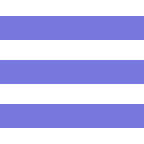My Struggle With “Education”
Since this is a post about education, let’s talk about sex...
Whenever I want to gain a better understanding of some aspect of human nature, sex is my go-to analogy. After all, nothing is more natural than sex, and nothing defies being denatured and mechanized like sex. (Although that hasn’t stopped people from trying endlessly!) If you’ve ever experienced really amazing sex — the kind that elevates you physically, emotionally, and spiritually — then you know it’s a primal, natural, integral aspect of your Whole Self.
In that sense, I believe that nature intended education to be like really good sex:
- You do it because you feel a passionate desire to connect (with a person or with a body of knowledge).
- You do it for love, not for money or status.
- You don’t do it when you feel pressured or coerced.
- You don’t do it only at predesignated times.
- You don’t do it only in one place designated for that purpose.
- You do it when you feel “turned on” and inspired.
- It can happen in a variety of places.
- It’s consensual: you can say “yes,” say “no,” or change your mind at any point in the process.
- Being forced to do it is (or should be) illegal.
- You can do it alone, with a partner, or in a group. :)
Real education is like great sex in that the obvious parts of the process are, in both cases, only a fraction of the whole process. The peak moments are usually preceded by long periods of interacting with the person or subject of interest, in a variety of seemingly unrelated contexts.
Clearly, the list above doesn’t apply to conventional schooling. But education is not the same as schooling. If authentic education is like great sex, conventional schooling is like a series of forgettable hookups.
Like sexuality, education is a natural drive that can be activated at any place and time — a drive that’s always present at some level even when it’s not activated. Just as we are biologically driven to procreate, we are also biologically driven to become educated — to acquire knowledge, values, and skills that are conducive to a satisfying and meaningful life. That’s why we’re naturally curious and playful.
If everyone understood education in this way, we wouldn’t have an “education system” (just as we don’t have a “sexuality system”). We would trust our children’s instincts to drive the educational process without them being compelled or coerced, and we wouldn’t create educational institutions that are disconnected from real life. We would realize that when children are not forcibly isolated from the world of adults, they observe and emulate — usually through play — those aspects of adult life that seem to be most empowering. In doing so, they become educated without trying. Curiosity-driven,
In other words, education ideally wouldn’t be thought of as “a thing” the way school is a thing. That’s why I struggle with my recent shift into a more active role as an “education advocate.” That’s why, as much as I dislike the awkward, double-negative term unschooling, I still embrace it — because natural,
Nevertheless, I will continue to advocate for the proliferation of schools that support




